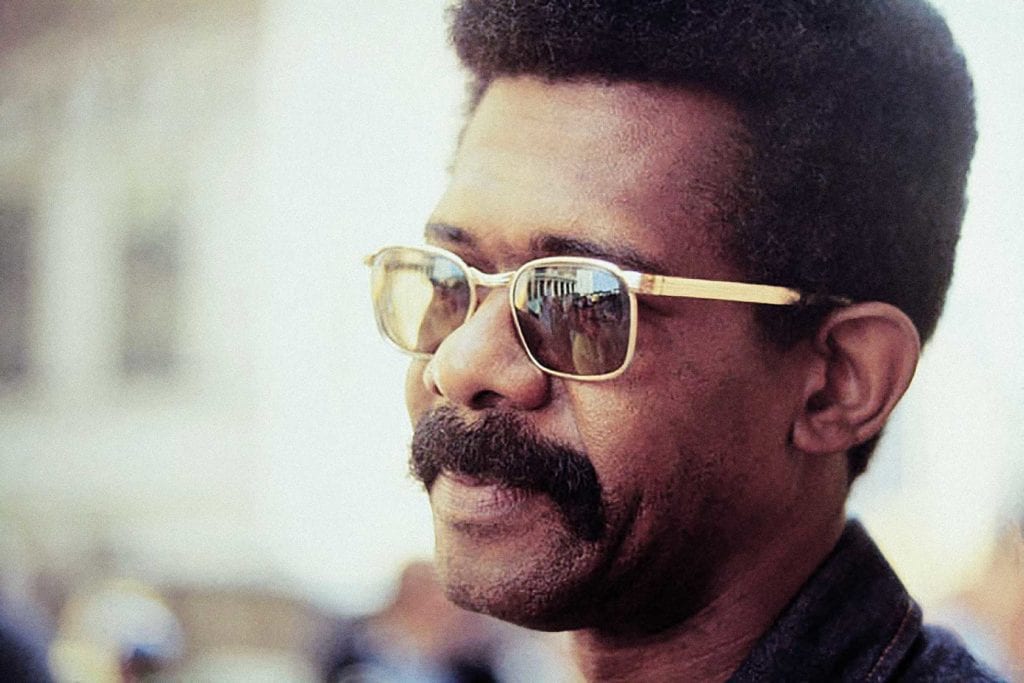‘Mr. SOUL!’ screens at the 16th annual African-American Film Festival

“The film speaks to many, many different audiences. It has a universal appeal even though it has a black subject manner,” director Melissa Haizlip told the Banner recently about her documentary “Mr. SOUL!” She continued, “It’s also about history — American history, broadcast history, television history, our collective cultural history — which is what’s so special about it. The fabric of all us together, and how music and culture brings us together, and of course public television. There’s a lot of crossover there.”
Directed by Haizlip and Samuel D. Pollard (“Eyes on the Prize”) and ten years in the making, the documentary was a labor of love for Haizlip. It tells the story of her uncle, Ellis Haizlip, and his groundbreaking TV program “SOUL!,” which he executive-produced and hosted from 1968–1973. It first launched locally on New York’s public television station WNET, before airing nationwide on PBS in 1969.

SOUL! Producer and Host, Ellis Haizlip. Photo: Chester Higgins, Jr.
The show was initially created as a black version of “The Tonight Show,” but it was much more than that. It was a cultural force that introduced African American singers, dancers, actors, poets, musicians, and political and revolutionary leaders to a national mainstream audience. “SOUL!” featured a wide variety of guests, including Patti LaBelle & the BlueBelles, Sidney Poitier, James Baldwin, Sonia Sanchez, The Last Poets, Rev. Jesse Jackson, Kathleen Cleaver, Stevie Wonder, Alvin Ailey and Earth, Wind & Fire.
Haizlip was inspired to tell this story, she said, because the history of her uncle and “SOUL!” had been lost and forgotten. During its run, the hour-long show aired live, which was a “blessing and a curse,” according to Haizlip. “It was before the idea of archiving and preservation,” she said. She also believed it was important to shed light on a moment of broadcast history. “The birth of diversity in television, freedom of expression and truth — I wanted to tell that story,” she said.
In addition, she wanted to recognize Ellis Haizlip as an African American LGBTQ icon. “He did something really unique, in that he celebrated emerging artists at the same time as famous artists while juxtaposing all that against post-civil-rights black radical thought,” said the filmmaker. “But he was also an activist and advocate for LGBTQ rights and gender parity at a time when that really wasn’t fashionable.”
Screening
“Mr. SOUL!” screens on Thursday, Aug. 9 as part of the 16th Annual Martha’s Vineyard African-American Film Festival (MVAAFF). Produced by Run&Shoot Filmworks, the festival began this past Monday, Aug. 6 and runs through Saturday, Aug. 11. The documentary is one of 65 original feature films, documentaries and short films screening at MVAAFF this year.
Blair Underwood, narrator and executive producer of “SOUL!,” describes the documentary as a love letter from Haizlip to her uncle. Underwood said he was “intrigued, curious and fascinated,” when Haizlip approached him to narrate the film. He had never heard of Ellis Haizlip or his show, but after seeing the film, he very much wanted to be involved. He told her, “If I can help in any other way — beat the drum, get the word out there and help promote it — I’d love to be a part of it.” Underwood will be in attendance at the film festival this week along with Haizlip for a post-screening conversation on Thursday.
Vineyard film fest
Stephanie Rance, who along with her husband, Floyd, created the MVAAFF, said the festival has exceeded their expectations. “It’s been a wonderful journey doing this activation on Martha’s Vineyard. Doing any kind of event on this island is definitely challenging, so the fact that we’ve been able to do this for 16 years is pretty impressive. We’re proud of ourselves with it,” she said.
Other films screening at the festival include “BlacKkKlansman” by Spike Lee, who’s been a long-time supporter of the film festival; “If Beale Street Could Talk,” based on the James Baldwin novel of the same name, by Barry Jenkins (“Moonlight”); and “Maynard,” the documentary from acclaimed filmmaker Samuel D. Pollard, recounting the life and career of Maynard Jackson, the first African American mayor of Atlanta.
With so many independent film festivals taking place throughout the year, Rance believes that one of the reasons MVAAFF stands out, in part, is the island itself. “The island, you know, has a huge history of African Americans,” she said. “What’s unique about our festival is that all are welcome. It’s like a family reunion. We have generations of people who attend our event.”






